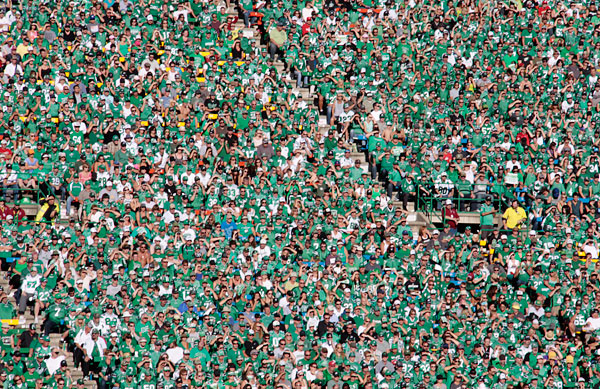From that pick-up game in the neighbourhood park to the marquee matchup under the lights in the big stadium – sports has a natural process of finding the most qualified.
The athletes grow bigger, stronger, faster. The game has a quickened pace and heightened intensity.
The ball, the puck, your opponent and your decision making moves a little faster. You need to be quick, smart and choose every move carefully and thoughtfully.
Sports journalism is the same way.
From the time the game clock hits all zeros in the fourth quarter or third period, or the last out is recorded in the ninth inning, reporters covering the game have approximately 90 minutes to make their way from the pressbox to the locker rooms of both teams to conduct interviews.
From there, it’s a mad dash to any available seat in the press room. Start typing. You’re on a deadline.
That’s often why sports writers keep a running game story as the action unfolds. I learned this when I worked at daily newspapers and covered evening sporting events on a deadline. Having that headstart as your deadline clock ticks closer to zero is extremely beneficial.
But that age-old strategy was thrown out, if only once, on July 1, 2010.
If you were one of the fortunate fans at Mosaic Stadium that day, you’d understand why.
The Montreal Alouettes and Saskatchewan Roughriders clashed in what was the most entertaining football game I’ve ever seen in person. It was a reminder that sports is the greatest reality show on TV.
As a journalist, however, it was chaotic and nerve-wracking.
Led by Anthony Calvillo, Montreal jumped to an early lead and controlled the game 33-12. The outcome, as many assumed, was decided. The stories were being written.
Hold the phone.
Darian Durant led the Riders on three consecutive touchdown drives and tied the game 33-33 in the fourth quarter.
Select all. Delete. The story needs a rewrite.
A room filled with veteran sports journalists who thought they had seen everything in organized sports, rested their pens on the table and folded the screens on their laptops to gain a better view of the action on the field.
They were in awe of the show. We all were.
The teams continued to race up and down the field and traded touchdowns in the final four minutes. We were headed to overtime, the most dreaded word to any reporter on a tight deadline.
Durant found Andy Fantuz for a go-ahead touchdown and the Riders took a lead. Calvillo answered with a touchdown toss to S.J. Green.
Hold off on writing that story. Nothing has been decided yet.
Montreal kicked a field goal on its second possession of overtime. This allowed Saskatchewan a chance for a walk-off win.
Two plays later, Durant connected with Weston Dressler for the game-winning touchdown.
Riders win 54-51.
More than 33,000 fans in the stands were going crazy. In the pressbox, the only noise you could hear was the sound of fingers banging on keyboards.
(It’s an unwritten rule – perhaps even forbidden – for any working reporter to cheer in the pressbox. Neutrality is key.)
Your focus as a reporter is to be impartial, unbiased. In sports, we don’t cheer for a specific team. We cheer for a compelling story. It’s our job to tell it.
Go ahead, tell this story. We have ample ingredients for a masterpiece.
Because the game went into double overtime, we had about 60 minutes to get our work finished. Remember, no typos. And accuracy is everything.
Good luck.

Martin Charlton Communications Senior Content Creator Craig Slater has covered the Canadian Football League for more than 10 years. In addition to working for Martin Charlton, he covers the Saskatchewan Roughriders for The Canadian Press.
Image CC BY 2.0: https://www.flickr.com/photos/waferboard/

